Boss Monster — Desktop dungeoneering
If you enjoy retro, 8-bit platform games and you’re on the lookout for a fast paced, unusual card game, then Boss Monster might be right up your street. It combines classic pixel art with the unique concept of having players act in the role of an end of level boss who is hoping to build out their own level as a tableau.
The catch is, heroes are constantly seeking to beat the most interesting levels and if you let them through, they’ll eventually kill your boss character! Even though Boss Monster is quite a small box game, it spills out onto the table and takes up quite a bit of room. This makes it ideal for transporting and playing with friends whilst away from home. The knockabout nature of the gameplay also means that it is ideal for playing whilst enjoying a few drinks and some baked snacks, perhaps in the pub or in a hotel foyer.
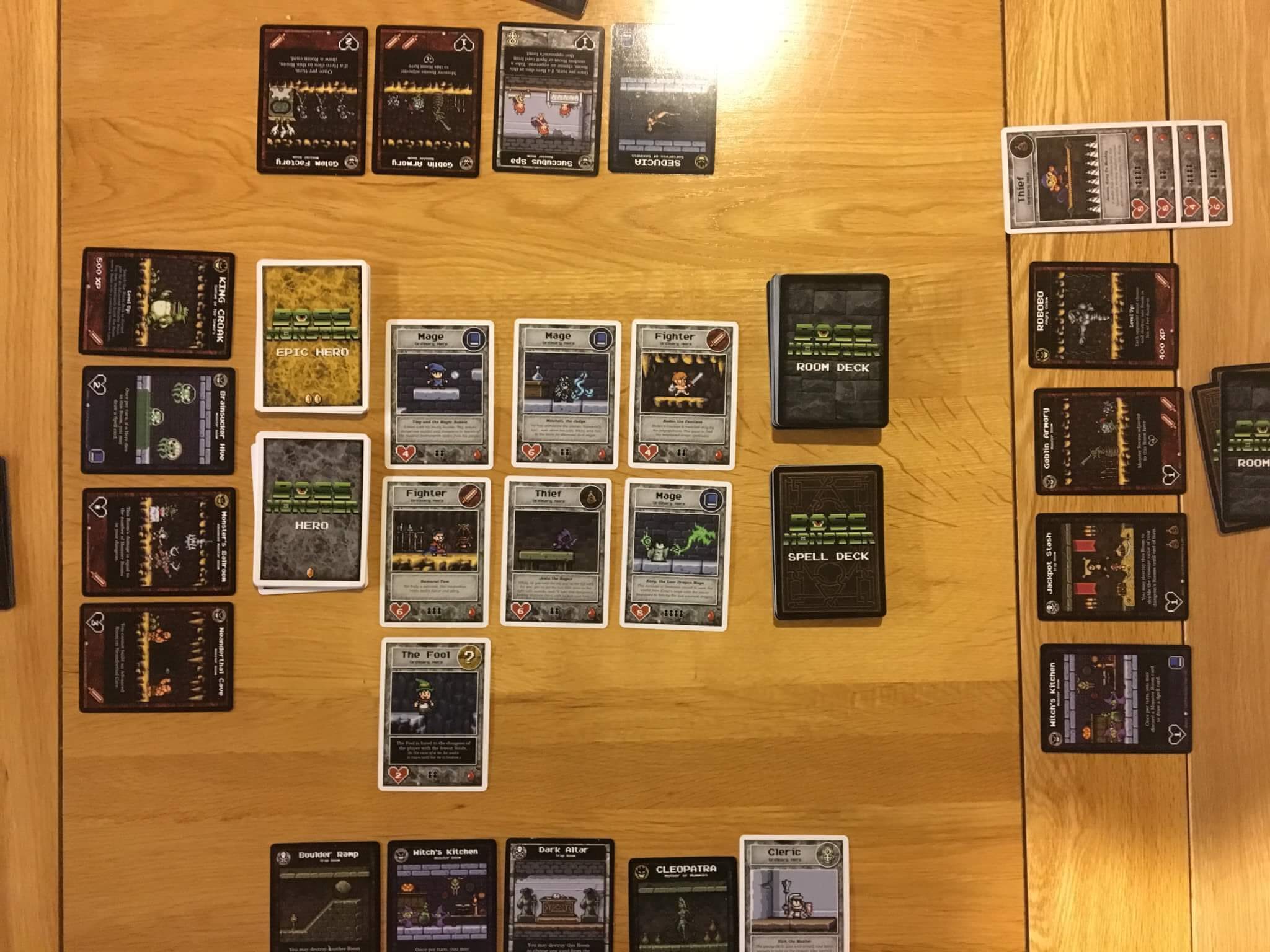
Gameplay begins with the players choosing one of the various boss characters that are included in the game. This can be done however you like really — either randomly, via a draft or by flipping a coin. The result of this is that the boss assigned to each player will have a special power that activates when something specific happens within their dungeon. You’ll also see an exp value for each monster and this determines the player who will act first.
Players will be dealt five room cards and two spell cards during setup, and when the build phase begins, they will place one basic room card out in front of them. This process is repeated each turn, expanding the players tableau out to a maximum of five cards that run thematically like a side-scrolling platform game from left to right. A variety of icons will be shown on them, as well as some special text in almost every case.
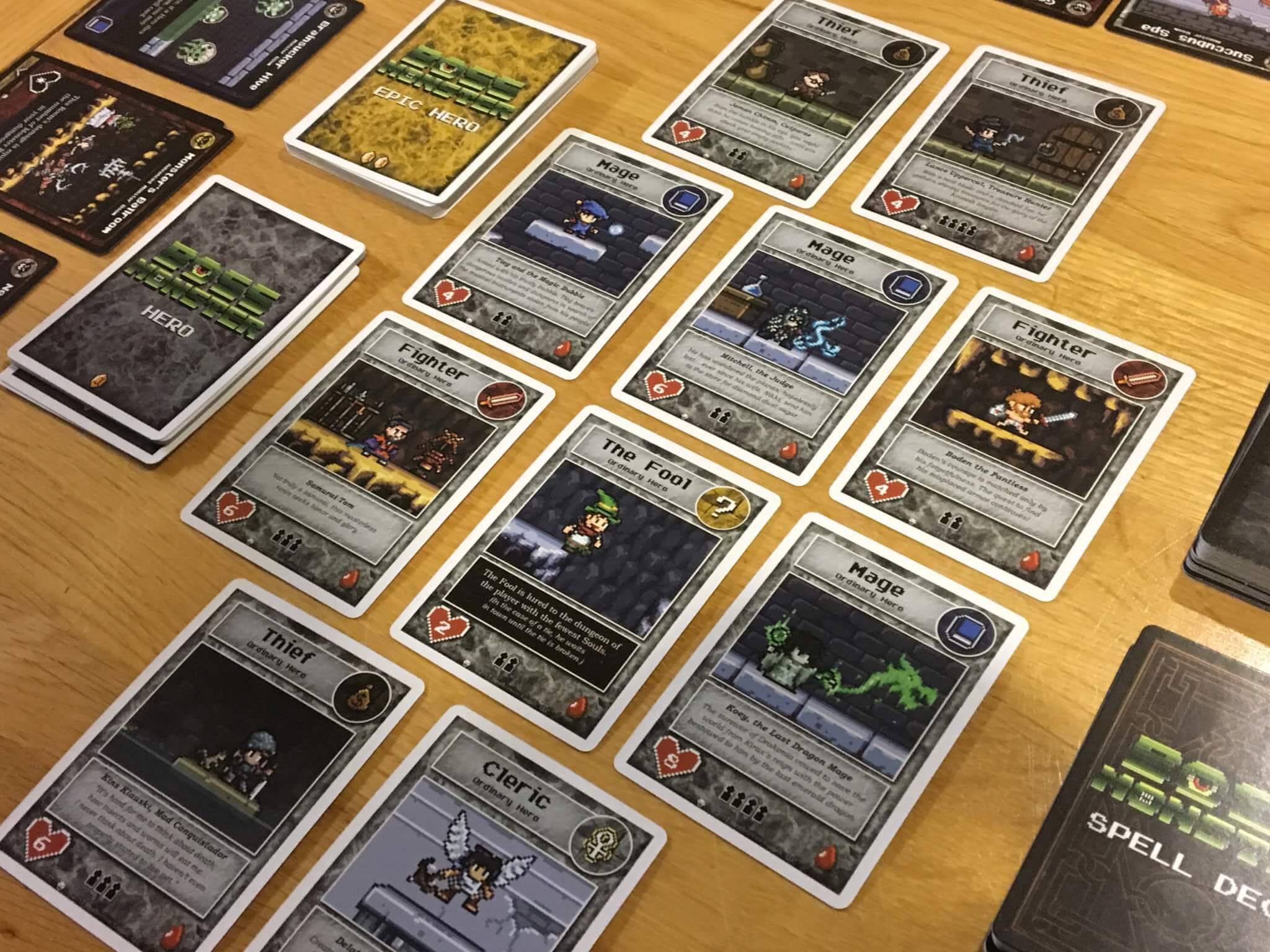
There are two kinds of room in the base game; traps and monsters. Trap rooms generally have single use effects that can either be activated at will or will be triggered when a hero enters them. In general terms, trap rooms have rulebreaking effects or deal large damage, making them an important consideration. Monster rooms provide a permanent defensive presence that may also have some rules (like benefits from adjacency to other rooms) but will not often do as much damage as a trap would.
Without labouring on building out the dungeon too much (since it’s actually only a small part of each turn, albeit a crucial one) there are also advanced trap and monster rooms that can be placed over the top of a regular room that shares a symbol. When this happens, it’s as simple as it sounds — the advanced room card replaces the basic room that hides beneath it and the (usually) more powerful effects come into play.
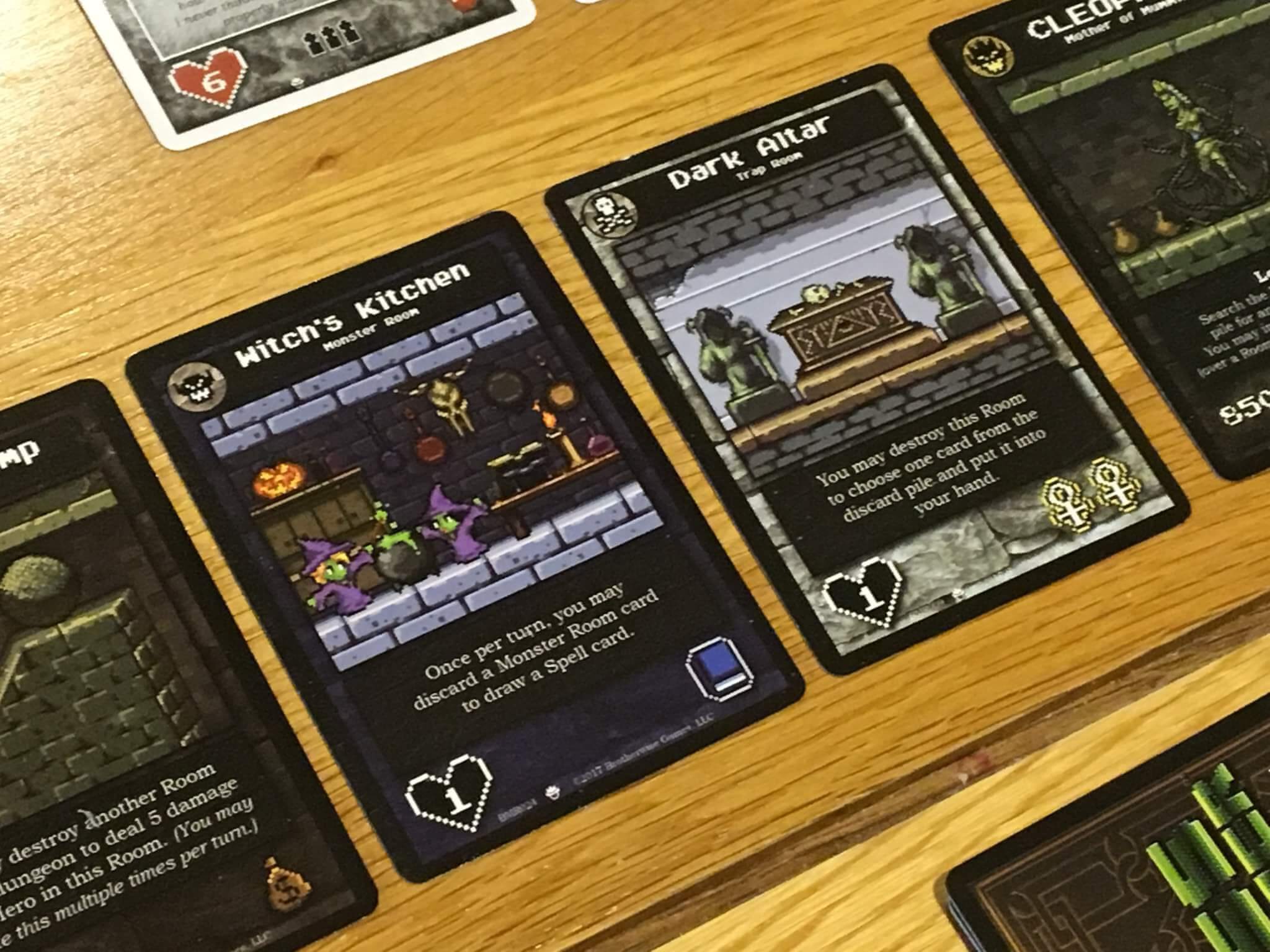
Now, the purpose of all this building is actually to both attract and defeat heroes, but a fine balance must be struck between these two things. Heroes (and later in the game, legendary heroes) will be drawn from a hero deck each turn and will be placed in the centre of the table. Each hero is seeking a specific kind of loot — such as wisdom, gold or relics. The heroes will attack the boss who’s dungeon has the most icons associated with their hero kind (and will not attack anyone in the event of a tie or if there are no such icons.)
When a hero attacks, they will move through the dungeon beginning with the leftmost card and ending with the boss — dealing damage equal to their strength. If a boss ever receives a lethal amount of damage then it is defeated, eliminating that player. In better circumstances, the hero will take damage in each dungeon space until they are defeated, which means they are flipped face down and their soul is collected by that boss. The first to collect the agreed number of souls is the winner.
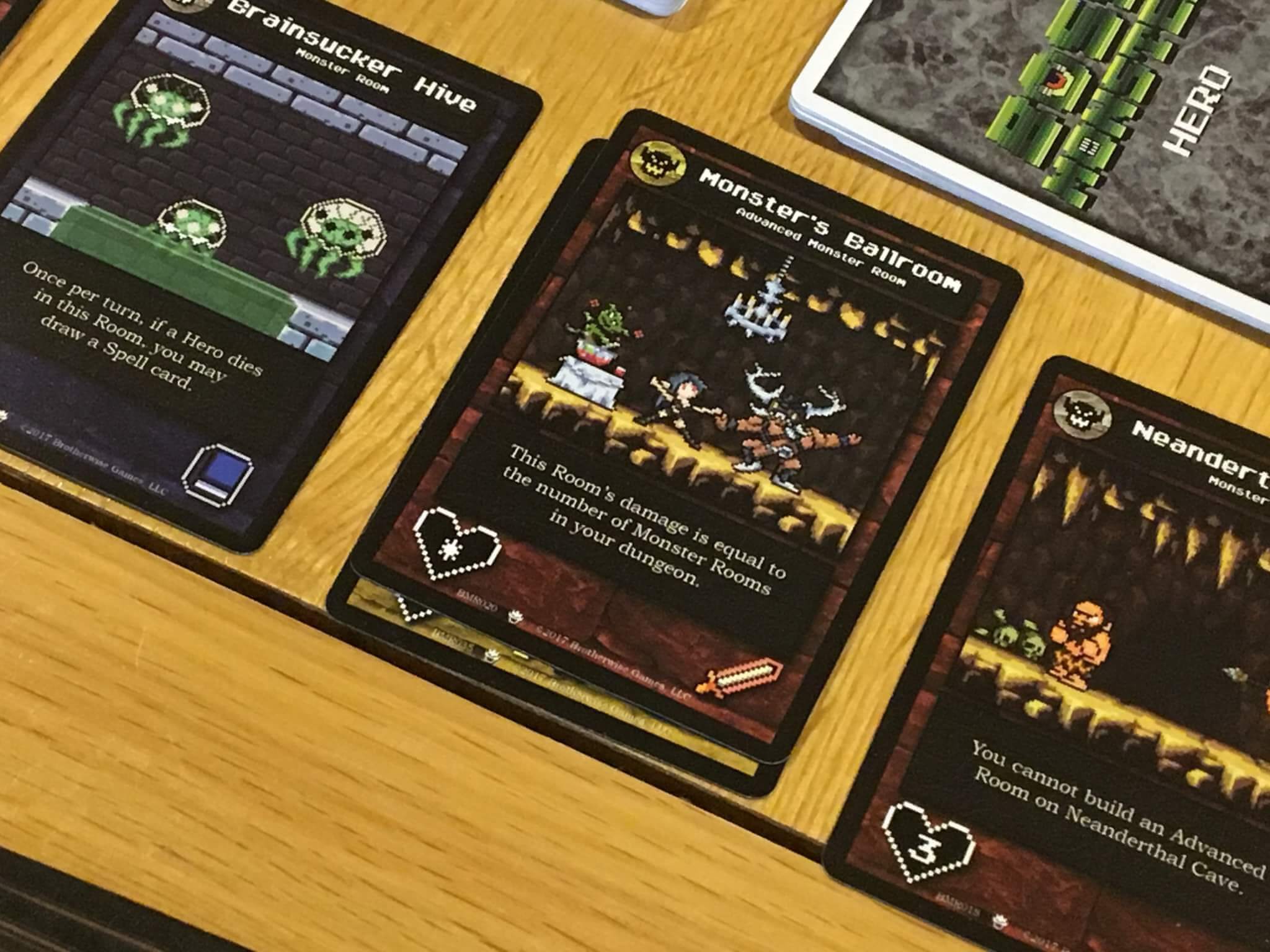
The real heart of Boss Monster is striking a balance between attracting heroes to your dungeon and having enough combat value to defeat them. As you could likely predict, cards that really attract heroes tend not to damage them (although they may still do something) whilst most of the basic rooms that deal damage, offer little by way of treasure symbols. There’s also the unpredictability of the heroes being drawn — you can plan for those on the table, but not for those yet to appear.
Spells help to mitigate some of this uncertainty, and a high number of them result in misdirection and take that style effects that will disrupt the plans of enemy bosses. Typical examples include spells that will direct heroes either to or away from your dungeon, whilst others can swap the order of rooms around or allow heroes to skip a room. These kinds of tricks can be particularly painful late in the game, so there are also some counter spells.
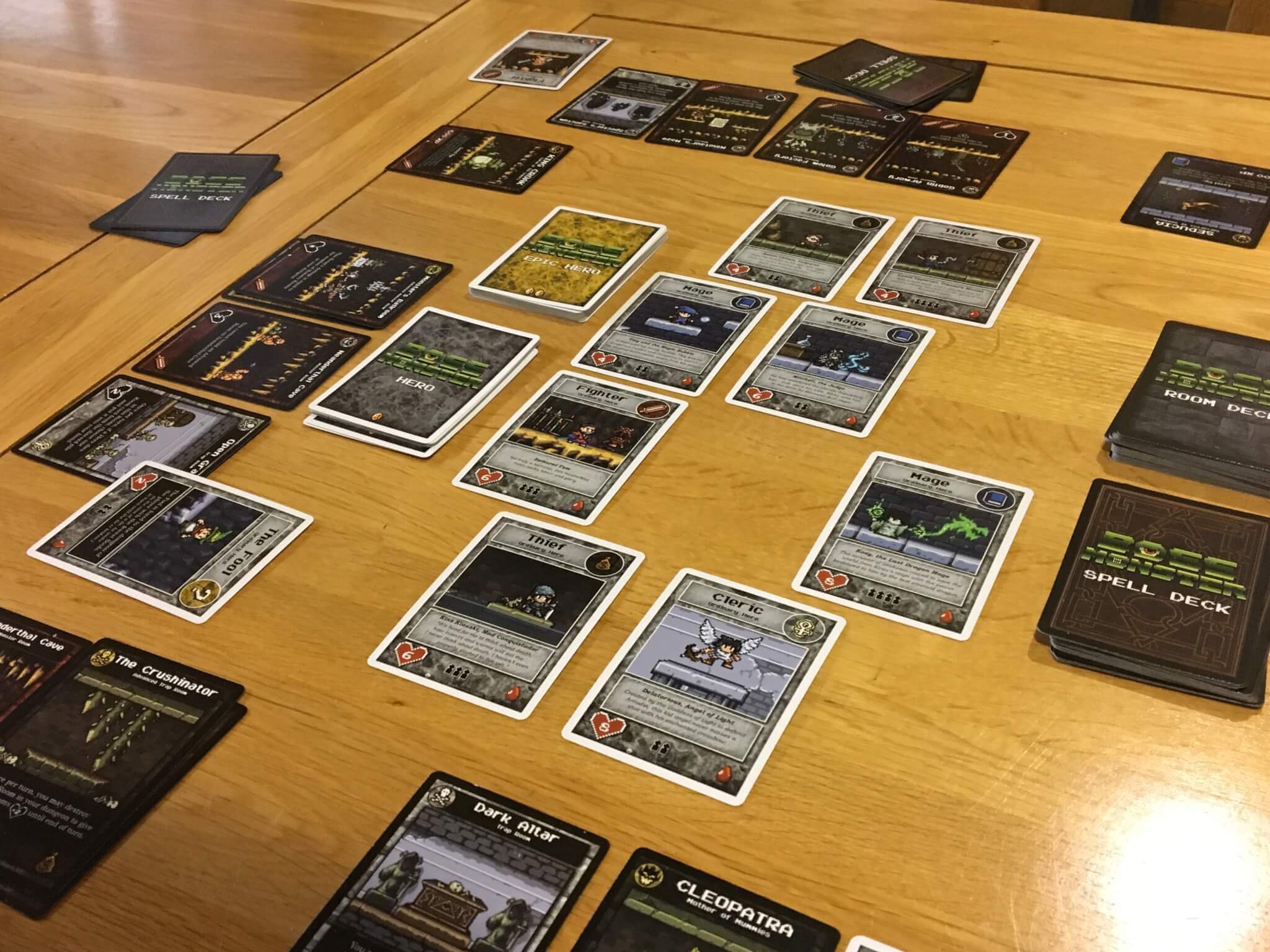
If you’re considering purchasing Boss Monster (and assuming that it sounds like your kind of game) then there are two ways to look at it. Firstly, as a standalone game and secondly, as a system that has already received a number of expansions. In isolation, the base game provides enough cards to ensure reasonable replayability in a compact box, but I’d say that if you really enjoy the game, you’re quickly going to want to dive into some of the expansions. There have been several over the years and there is even a Boss Monster Collectors Box.
Personally, I’ve enjoyed playing Boss Monster for the purpose of this review, but I’m unlikely to play it that much in the future — unless I reach the point where I dive into some of the expansions. This can be the downside of really drilling into a game over a short period of time, especially if it’s one where you will likely see the same cards starting to appear time after time. With that said, it took five or maybe more games before my friends and I were playing Boss Monster at what felt like peak efficiency, so this is a game that rewards a gaming group that will invest repeated game nights into it.
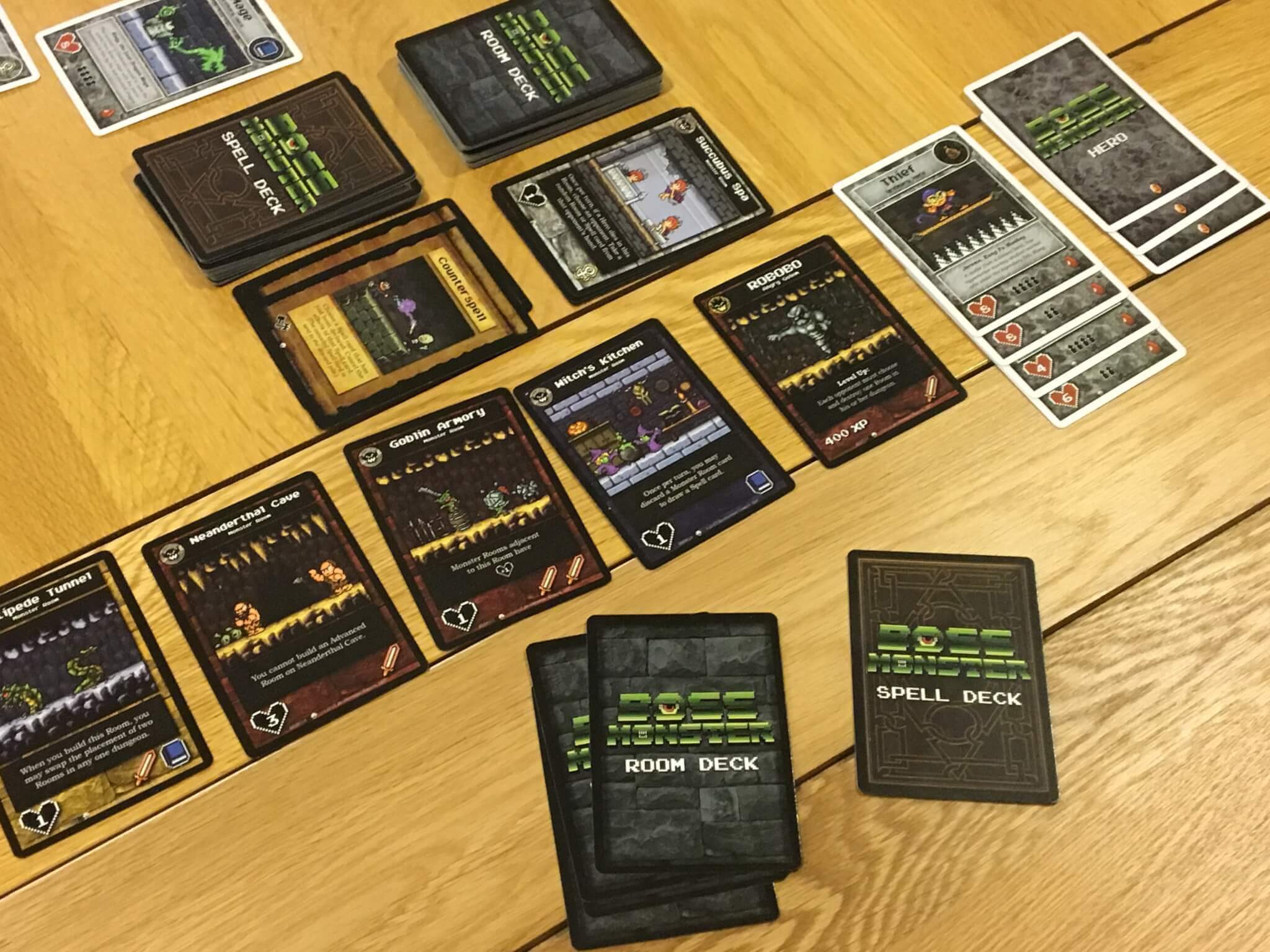
With it’s video game visuals and its relatively simple yet unusual gameplay, Boss Monster is a good addition to any fun loving game collector who is interested in moderately complex, competitive games that don’t fit the typical small box game brief. Video game fans will feel a thematic connection, whilst players that enjoy planning and scheming over several turns will also find Boss Monster of interest. Anyone who enjoys it will find it highly expandable, whilst anyone who is on the fence would likely still do well to pick it up, since the base game is very cost effective.
Boss Monster is available for purchase right now, including over on Amazon. You can find out more about the game over on the website of publisher Brotherwise Games.

Comments are closed.